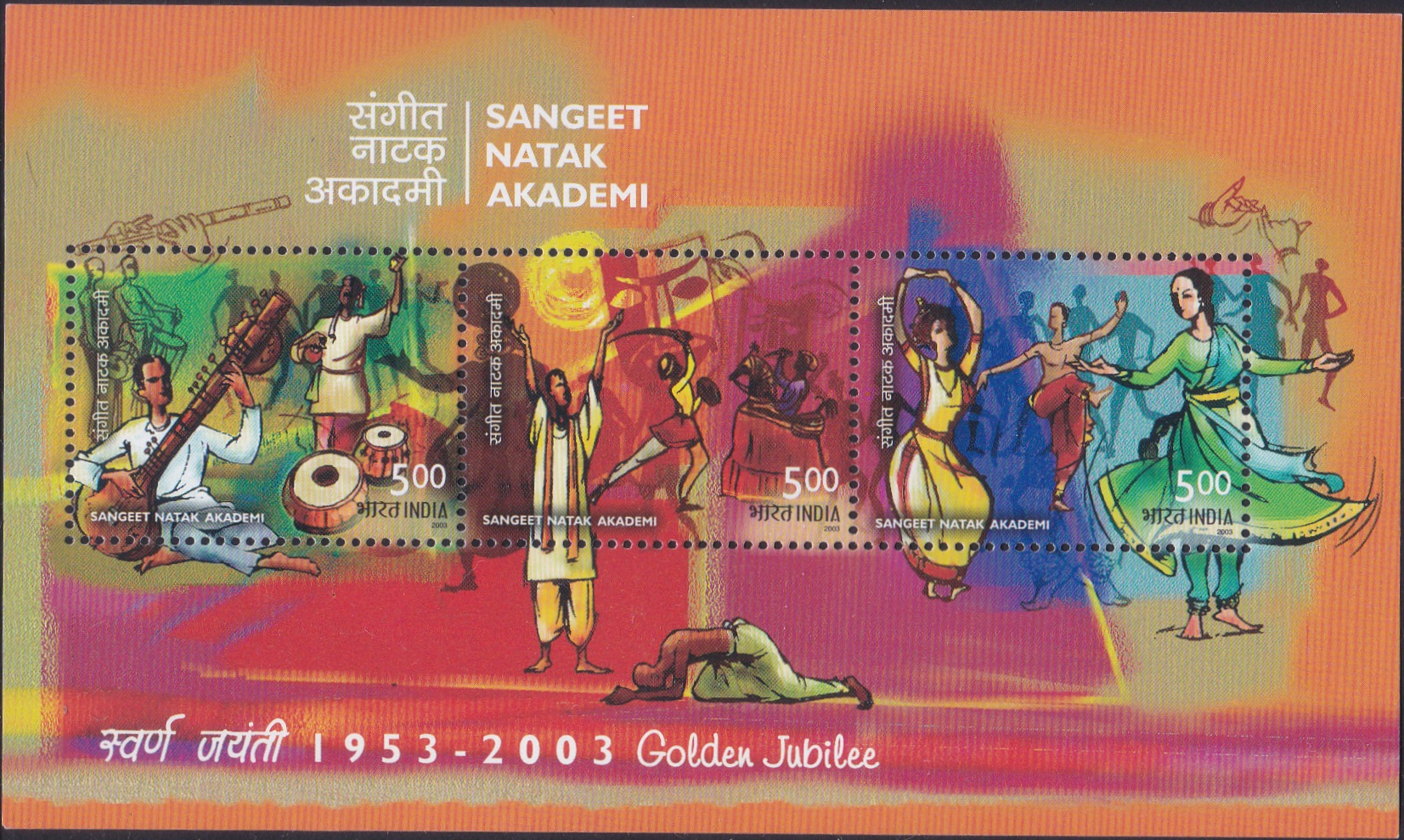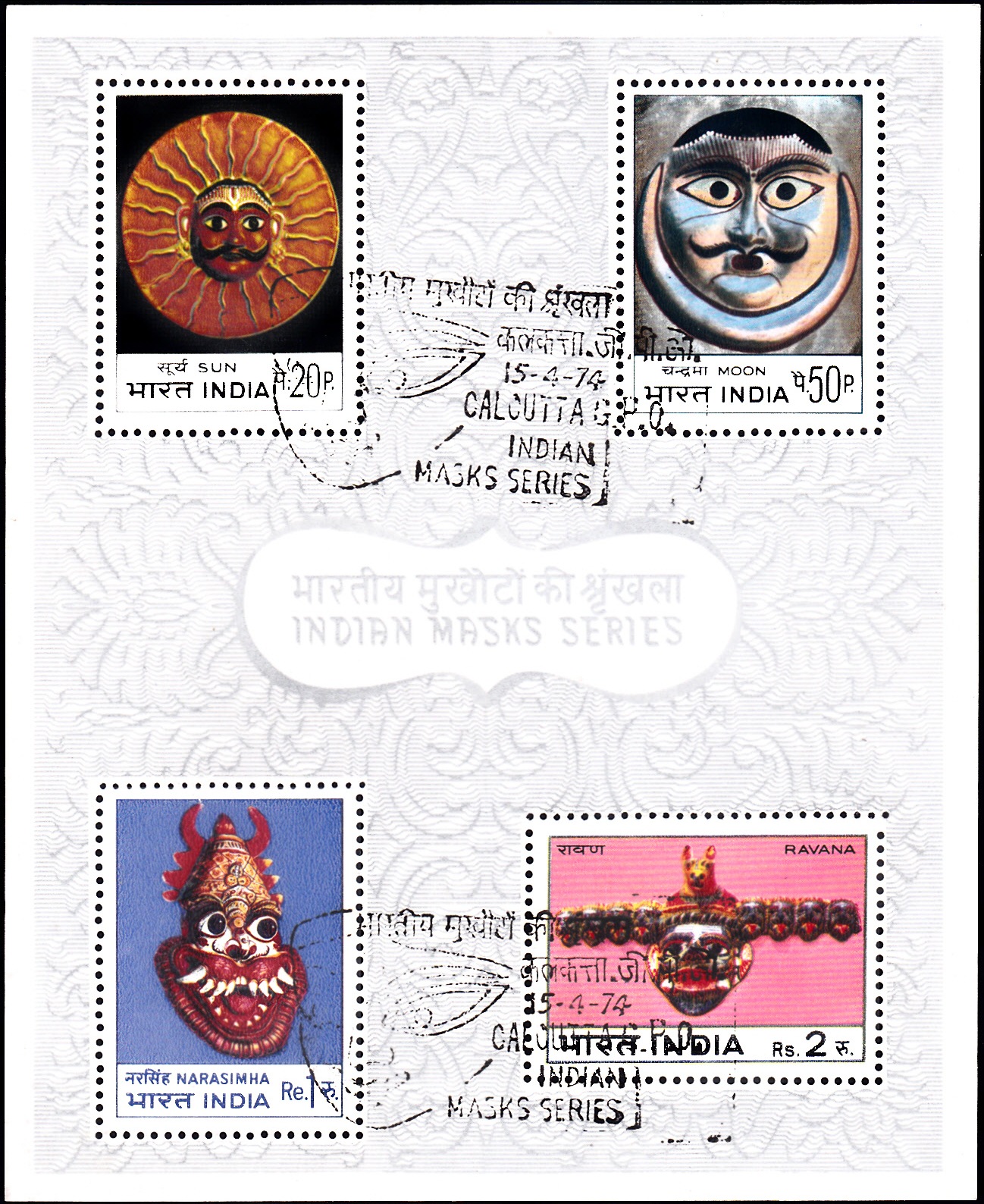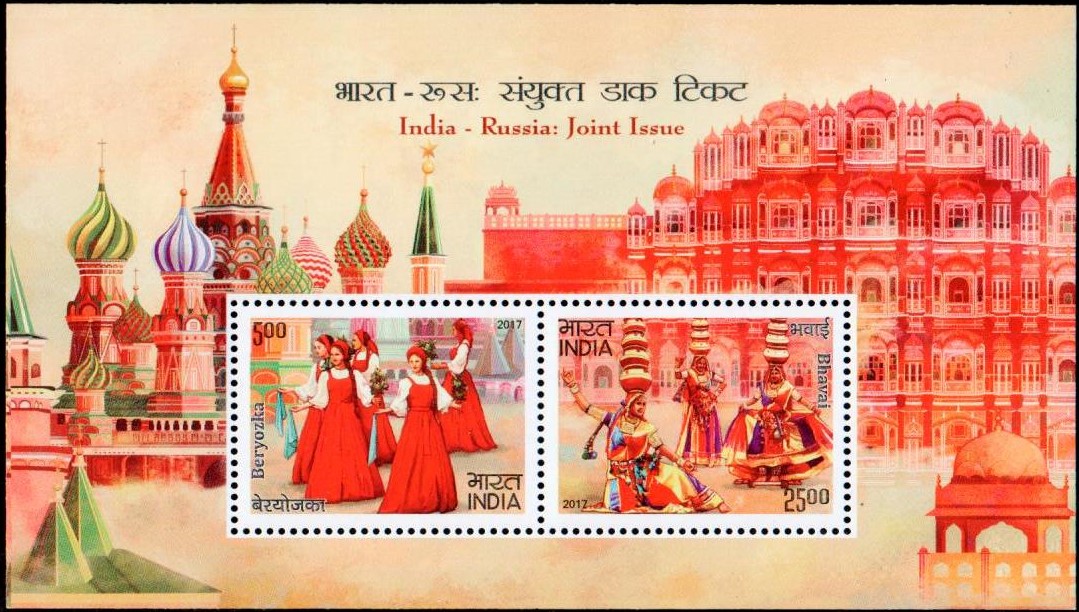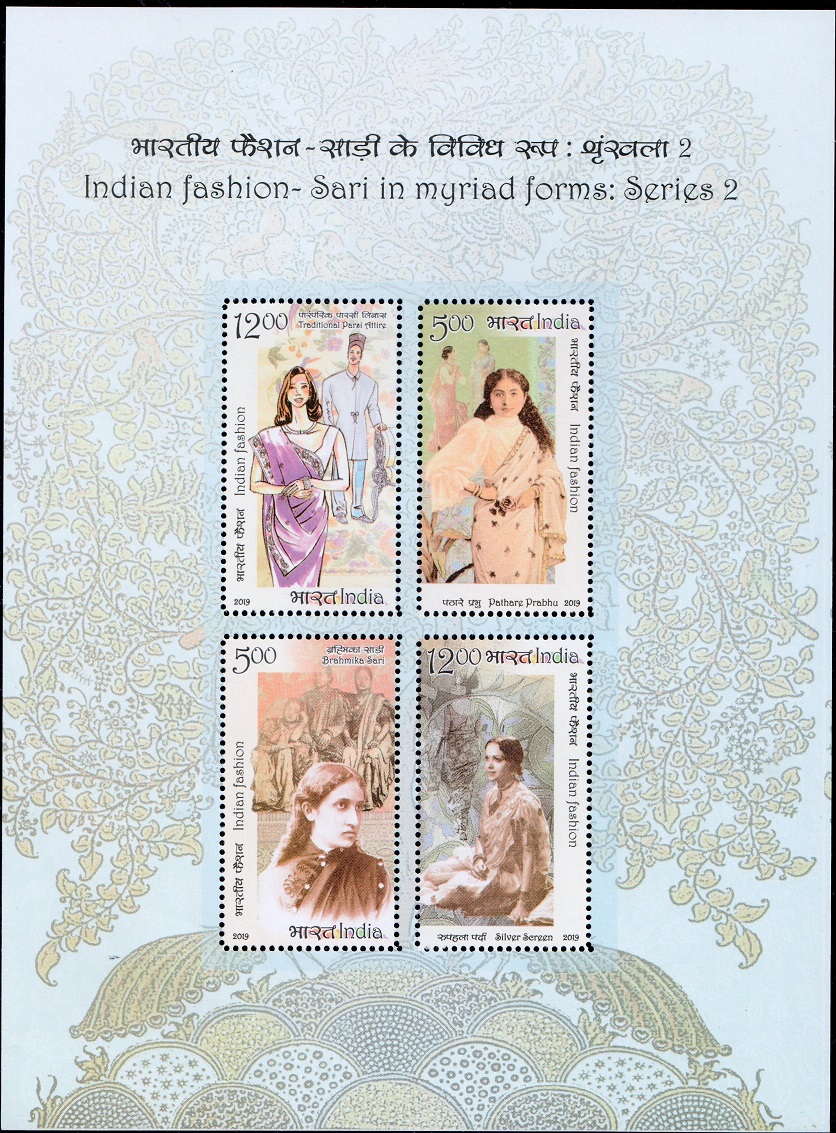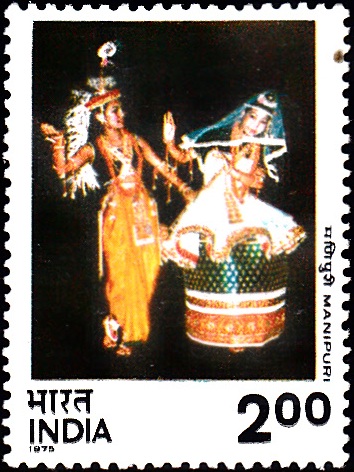
India-Japan : Joint Issue
A miniature sheet consisting of 2 nos. of postage stamp on the 50th Anniversary of Diplomatic Relations between India and Japan : Classical Performing Arts : Kabuki and Kathakali :


 Issued by India
Issued by India
Issued on Apr 26, 2002
Issued for : The Department of Posts is proud to commemorate the 50th anniversary of diplomatic relations between India and Japan with the issue of a set of two commemorative postage stamps and a miniature sheet.
Design : The theme of this philatelic commemoration is the rich traditions of classical performing arts of Japan and India. The first stamp portrays Kabuki, the ancient form of drama from Japan. An exquisite blend of the musical and pictorial elements, it is an impressive evocation of Japanese creativity. The second stamp depicts Kathakali, the highly classical and visually rich dance drama of India.
Credits :
Stamp & FDC : Kamleshwar Singh
Cancellation : Alka Sharma
Type : Miniature Sheet, Mint Condition
Colour : Four
Denomination : 1500 Paise each
Overall size : 2.90 x 3.91 cms.
Printing Size : 2.90 x 3.91 cms.
Perforation : 13.5 x 13.5 mm
Paper : Matt Chromo
Stamps Printed : 1.6 million each
Miniature Sheet : One Lakh
Number per issue sheet : 8 each
Printing Process : Photo Offset
Printer : Calcutta Security Printers Ltd.
About :
- Lord Buddha who gave the message of peace and non-violence to the world also paved the way for a special bond between India and Japan. For nearly 2500 years the Japanese people have regarded India as a sacred country which has been a source of inspiration to them, through the spirituality of Buddhism. India has in its turn admired the phoenix-like economic reconstruction of Japan rising from the ashes of World War II.
- Economic ties between the two countries became important during the second half of the 19th Century, with the export of cotton and iron ore from India providing crucial inputs for the industrialization of Japan. There were also exchanges in the cultural and political fields such as the meeting of India’s poet Laureate Rabindranath Tagore with the Japanese philosopher, Tenshin Okakura and episodes from India’s National Movement concerning leaders like Netaji Subhas Chandra Bose and Ras Behari Bose, who had close ties with Japan. The post-Independence era saw the formalising of the friendship. Diplomatic relations between Japan and India were established on April 28, 1952.
- India’s invitation to Japan to participate in the first Asian Games in Delhi and the rousing reception given to Jawaharlal Nehru. India’s first Prime Minister during his visit to Japan in 1957 were unmistakable signs of the special cordiality that was emerging in the bilateral relations. This has been sustained by an exchange of visits by dignitaries of both countries at the highest levels over the years.
- The scope and range of Indo-Japanese relations have since widened to cover a variety of areas including trade, investment, education, defence, science & technology, information technology and culture. The common values shared by the peoples of the two countries like liberty and parliamentary democracy provide a sound basis to carry forward the constructive partnership into the 21st century. Being two prominent members of the world comity of nations, the potential of Indo-Japanese friendship is not limited to bilateral relations but also extends to their joint efforts for maintaining peace and security in the international arena and addressing various issues of global concern.
- Text : P.N. Ranjit Kumar.


